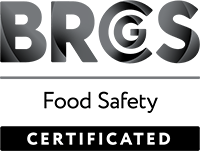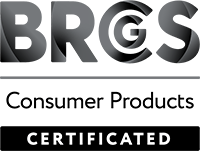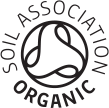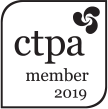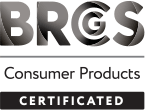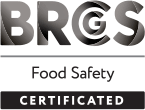According to our charity partner, Yorkshire Cancer Research, more people in Yorkshire get cancer – and die from it – than almost anywhere else in England. This is a sad fact and as a Yorkshire company, we believe we have a responsibility to support our employees to promote a healthier lifestyle to create a cancer-aware workforce.
During August, we completed wellbeing sessions at each of our sites alongside Yorkshire Cancer Research, with 45 employees in attendance. The topic, ‘Family Fortunes’ looked into the genetics of cancer – covering information about chromosomes, genes, and the genome, and how up to 10 cancers can ‘run in the family’. The sessions explained BRCA genes – the human genes responsible for producing tumour suppressing proteins. Genes are pieces of DNA that control how cells behave – all cancers develop when genes in a cell change, otherwise known as a ‘mutation’. These proteins help repair damaged DNA, playing a role in ensuring the stability of your cells. If the BRCA genes become altered, your risk of developing cancers such as breast and ovarian increases. Most gene variations happen during our lifetime, some can be inherited, but still only 5 – 10% of cancers occur due to an increased risk of inheriting a mutated gene. That means that 90 – 95% are caused by other factors and the life style choices we then make can have a positive impact on our chances of not getting cancer or surviving cancer. What can we control to prevent our cancer risk?
- Diet and physical exercise
There is plenty of evidence suggesting that the maintenance of a healthy body weight and higher levels of physical activity are linked to lower risks of a number of cancers. A healthy diet high in fruits and vegetables can boost your immune system and help protect against the growth of cancerous cells, as can healthy fats such as nuts and avocadoes. Exercise can also boost the immune system function, explaining its association with certain cancers and in helping maintain a healthy body weight.
- Sun protection
Skin cancer is one of the most common forms of cancer, but also one of the most preventable. Protect yourself from the harmful rays of the sun by avoiding excessive exposure and not getting burnt. Use sunscreen with a suitable Sun Protection Factor (SPF), or one containing natural, extra moisturising and UV-blocking ingredients such as raspberry seed oil, which is said to have an SPF of 30-50, carrot oil with an SPF of 38-40 or shea butter which helps to sustain sunscreen on the surface of the skin and naturally filter UV-B radiation.
- Tobacco use
Smoking tobacco is linked to 15 different types of cancers, including lung, oesophagus, mouth, and stomach cancer. The harmful chemicals found within cigarettes which enter the bloodstream, can damage the DNA in our cells in the body and cause them to become cancerous. Quitting smoking can have major health benefits, even at a late age.
- Alcohol consumption
Like smoking, alcohol is known to cause more than one type of cancer, such as mouth, liver, breast, and bowel cancer. The way the body breaks down alcohol creates a toxic chemical which can damage both DNA and proteins. Alcohol also impairs the body’s ability to absorb nutrients. Cutting down on alcohol intake, alternating with non-alcoholic beverages or trying drink-free days can all help.
- Vaccinations
It is not very well known but viruses can cause cancer by triggering genetic mutations. Many infections such as human papillomavirus (HPV) and hepatitis B (HBV) are known to contribute to human cancers such as cervical and liver cancer. It’s another reason to get vaccinated as they can support the human immune system.
Kerfoot cares
Kerfoot is committed to workplace health and wellbeing and is proud to be a Yorkshire Cancer Research charitable partner which it officially launched in May. A key pillar of our corporate social responsibility, we aim to create a cancer aware workforce who can share their knowledge with family, friends and the local community. In June, 31 Kerfoot employees took on the Yorkshire Three Peaks challenge, raising over £5,380 for Yorkshire Cancer Research – with funds still coming in. If you’d like to support the Kerfoot team by donating to the charity, please visit Just Giving.
Harrogate-based Yorkshire Cancer Research was founded in 1925 and is the largest independent regional cancer charity in England. The charity is committed to reducing the devastating impact of cancer on the lives of people living in Yorkshire. To find out more about Yorkshire Cancer Research and how it helps, please visit its website.


